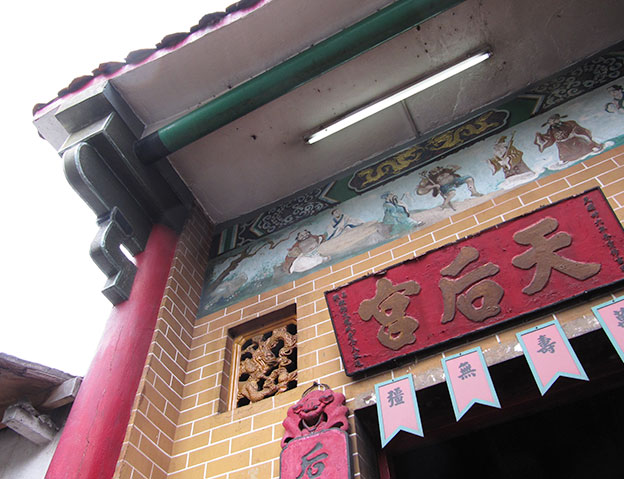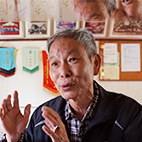
Government rent had to be paid for the land lot on which Tin Hau Temple stood
Ng Siu Hung’s family has a tradition that each year family members pay taxes (i.e. government rent) for the land lot of Tin Hau Temple-Photo taken by HKMP Team (2012)
Government rent had to be paid for the land lot on which Tin Hau Temple stood
Ng Siu Hung’s family has a tradition that each year family members pay taxes (i.e. government rent) for the land lot of Tin Hau Temple-Photo taken by HKMP Team (2012)
Serving at Tin Hau Temple to continue family’s tradition
Ng Siu Hung emphasized on his family contribution to the walled village. While he paid HK$1 in taxes (Editor’s note : Government rent) on behalf of Tin Hau Temple for many years, he never knew its title ownership. Some of the villagers even thought that the temple and its lands were owned by Ng Siu Hung’s family. As a result, he made a guarantee in writing with the elders. The document stated that even if the title to the property was established to belong to his grandfather or eldest uncle and if the Government requested demolition of the temple, he and the other descendants would waive their right to claim for compensation. As a result, any compensation money paid out would automatically become a public asset. Ng Siu Hung believed that his ancestors had donated the land to build the temple in order to appease both the gods and serve the walled village. For this reason, the temple and its lot should be a public property.


 BACK
BACK  CLOSE
CLOSE 